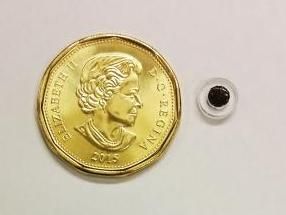Broadvector $8.5m IPO to develop prostate cancer and hip repair therapies
Advertisement
Broadvector Limited has lodged a prospectus with ASIC to raise up to $8.5 million to advance the clinical development of a new prostate cancer therapy and a second therapy that repairs the common problem of aseptic loosening of hip replacements. Each of these therapies is based upon gene-directed enzyme prodrug therapies known as GDEPT.
Broadvector has the exclusive worldwide license for this prostate cancer therapy initially developed at CSIRO. This approach is being developed as cost competitive front-line treatment for early to mid-stage disease. Additionally, the underpinning platform has many applications including developing new vaccines.
The company is also developing a therapy to treat aseptic loosening of prosthetic implants, specifically hip replacements. Prosthetic loosening is a common and painful condition that can develop some years after a joint replacement. The only current treatment is the surgical replacement of the prosthesis, which is expensive, invasive and many elderly sufferers are not able to undergo the procedure. Worldwide rights to the technology have been obtained from the developers, three European-based international companies and a prestigious university in The Netherlands.
Broadvector’s pre-IPO market capitalisation is $16 million and the Company is offering 42.5 million new shares at $0.20 each. The offer is due to open on Friday 9 September 2010 and closes on 7 October 2010. Broadvector is expected to list on the ASX on 14 October 2010.
“Broadvector has approval from the TGA and St Vincent’s Hospital in Sydney to proceed with the Phase I clinical trial. We also have the big benefit of two eminent specialists in prostate cancer who will lead the trial,” said Dr Andrew Bray, chief executive officer of Broadvector. “Our hip repair product is ready to proceed to a Phase IIa trial and has already been tested in clinical trials in Europe. This product has major points of difference and the potential to save many millions of dollars for health budgets.”





















































